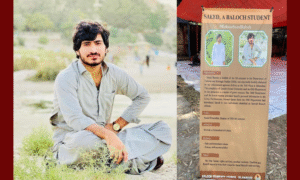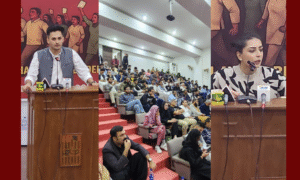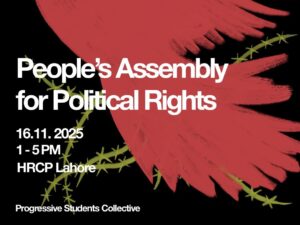“Let us now look at the zamindar. He is a feudal lord in his ‘small’ estate and maintains a legion of servants, he owns fine horses, cows and buffaloes. He possesses a large number of fire-arms and his shooting expenses every year run into several hundred thousand rupees. He is fond of pomp and show and likes to possess expensive cars and spends lavishly on luxury goods. He lives according to a primitive concept of luxury extravagance in food and dress, gross and vulgar, sexual excesses, garish ostentations are the things to which he chooses to devote his income and energy of his body and mind.”

Hari/Mazdoor spends most of his life terrified by the zamindar, trying to survive another day. Regardless, the poor Hari welcomes him every time he comes by saying: “saien aayo aa!”
Many zamindars refrain their subjects from getting education to keep them under their control and dependency. In recent times, harsh feudalism has existed mainly in rural Sindh, Balochistan and Southern Punjab.
To further add to the worsening situation, the modern day zamindar is an inexorable member of the national or provincial assembly. The zamindar threatens his poor Hari subjects into submission to his will and the Hari/Mazdoor spends most of his life terrified by the zamindar, trying to survive another day. Regardless, the poor Hari welcomes him every time he comes by saying: “saien aayo aa!”
These practices, in turn, hijack the idea of democracy. The poor Hari who doesn’t get a grain out of the field he works in bows to the Wadera\sardar for ‘social security’ and for a couple thousand rupees; ultimately voting for the same despot in every election. The zamindar is usually a sex addict who rapes his own wife, married off to him at a very young age, harasses poor Hari women and holds prostitution and ‘mujra’ programs on a regular basis.

The writer is a Left-wing student political activist working in Sindh.




